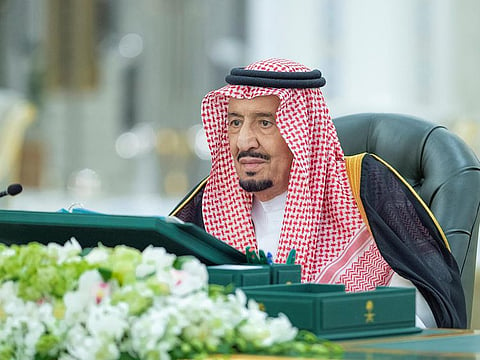King Salman issues royal decree: 20% increase in Saudi social security pension
Move to enhance living standards of citizens while alleviating their financial burdens

Dubai: Saudi Arabia’s King Salman bin Abdul Aziz has issued a royal decree increasing the social security pension by a substantial 20 per cent. The pension will now stand at SR1320, up from its previous amount of SR1100, as announced by the Ministry of Human Resources and Social Development.
The significant directive, which seeks to enhance the living standards of both male and female citizens while alleviating their financial burdens, was issued by King Salman in accordance with a recommendation made by Crown Prince Mohammad bin Salman, Prime Minister and Chairman of the Council of Economic and Development Affairs.
King Salman has also instructed continuing the registration and additional financial support for beneficiaries of the Citizen’s Account Programme. This extended support will span three months, reaching beneficiaries until December of this year.
The royal decree has also empowered the Citizen Account Committee to introduce additional parameters aimed at optimising support efficiency and ensuring it reaches the most deserving segments of Saudi society.
Mohammad Al Rizqi, Spokesperson for the Ministry of Human Resources and Social Development, emphasised the positive impact of the increase in the basic minimum for pension calculations. He stated that this change, set to take effect on November 1, 2023, will automatically apply to all eligible beneficiaries without requiring any action on their part.
“The social security pension for the breadwinner will now be SR1,320, up from SR1,100, and for dependents, it will be SR660 instead of SR550. This increase covers all eligible family members, as long as it does not exceed the upper limit of the per-family pension, which is SR5,000,” Al Rizqi explained.
Al Rizqi further clarified that this directive aims to establish essential means and measures to assist the neediest individuals in society. It ensures a minimum income level that meets the basic needs of beneficiaries and offers social support and protection, prioritising the most vulnerable and deserving individuals.



